
This page collects album reviews for 2010s artists for whom I’ve only reviewed one or two albums. In 2018 I started covering new albums regularly, so this page is very heavy on the last couple of years of the decade.
(Sandy) Alex G
House of Sugar
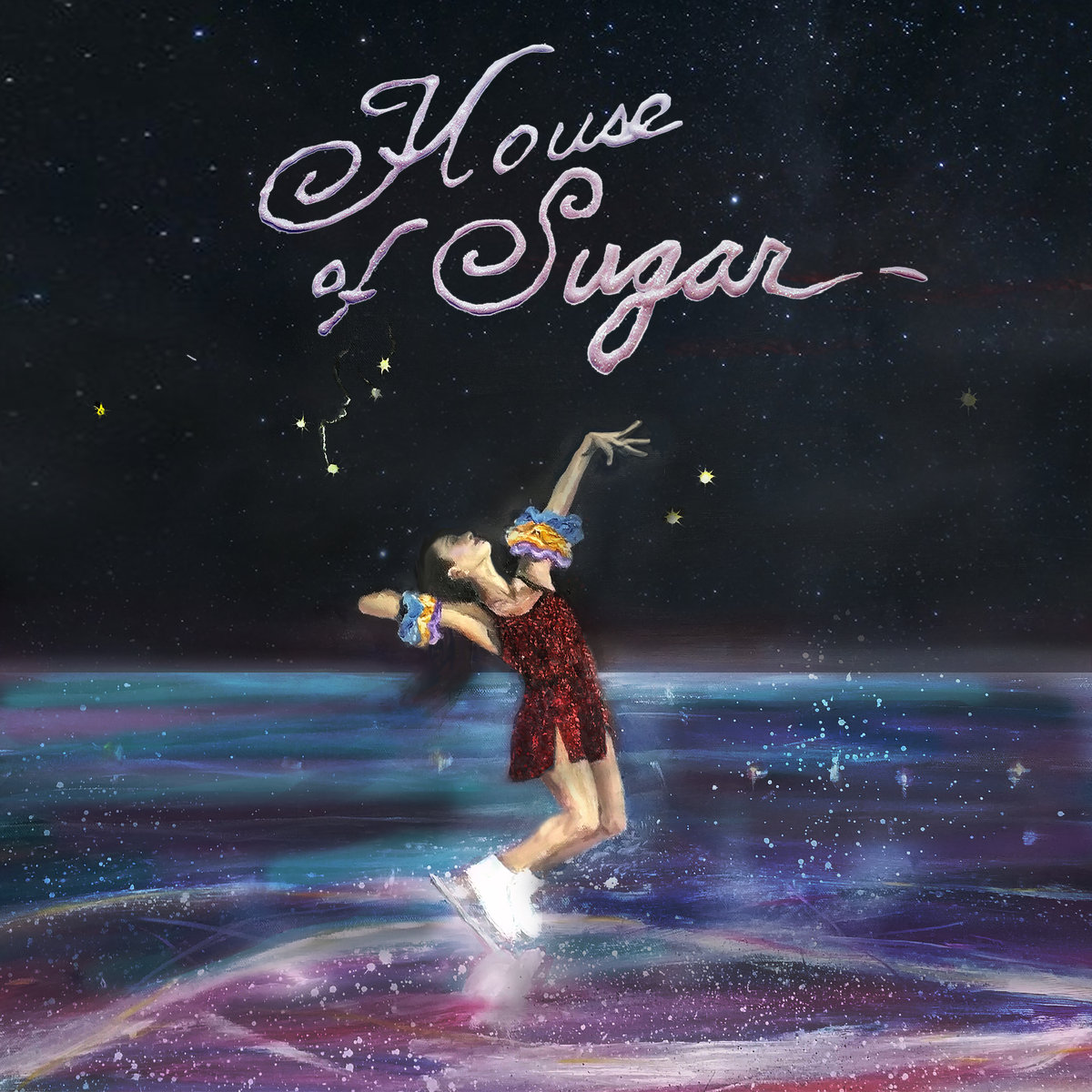
2019, 8/10
Philadelphia’s Alexander Giannascoli, known as (Sandy) Alex G, is a product of the Bandcamp self-promotion era. He’s been self-releasing albums of bedroom pop for a decade, building a profile. House of Sugar is his eighth album and, unlike his earliest records, it has its own Wikipedia page, a CD release, and has cracked the Billboard top 50.
House of Sugar is named after the witch’s house in the fairy tale Hansel and Gretel – the first single is also named ‘Gretel’. Musically, (Sandy) Alex G plays deconstructed bedroom pop, often with prominent acoustic instruments like guitar and piano. There’s a distinct, homegrown flavour to his records, even as they become more professional sounding.
House of Sugar features a blend of song-oriented pieces like ‘Gretel’ and ‘Southern Sky’, and more atmospheric pieces. ‘Gretel’ and ‘Walk Away’ have an indie pop flavour, based around acoustic guitar. The bonus track, a live ‘Sugarhouse’, is strangely reminiscent of Springsteen with its impassioned vocal and saxophone backing.
House of Sugar seems unassuming at first, but gradually reveals its charms.
Michaela Anne
Desert Dove

2019, 7.5/10
Country songwriter Michaela Anne moved from Nashville to California to record her third album, hoping to capture a Southwest-noir atmosphere. Desert Dove is neither alt-country or mainstream country, but instead it’s a throwback – it’s pure 1970s country, sometimes like the gentle vibes of Emmylou Harris and other times like the smooth country-rock of the Eagles.
There are shades of Lindsey Buckingham in the climactic guitars that close ‘I’m Not The Fire’ and ‘Someone New’, while the chorus hook of ‘Child of the Wind’ recalls the Eagles’ ‘Already Gone’. The musical tropes are well worn, but Michaela Anne’s strength is her sincerity; she sounds great on ultra-stripped-down material like ‘Be Easy’ and ‘One Heart’.
Michaela Anne can connect emotionally with her gentle delivery on lines like “who are you to say what’s too much love to take for one heart?” It’s easy to take her side, she’s like an awkward outsider with lines like “I have a lover but in time he’ll go away/How could he love me when I act out this way?”
Desert Dove is heavily indebted to 1970s country and country-rock, but it’s charming enough to have a life of its own.
Big Big Train
Grand Tour

2019, 7.5/10
Most bands release their most loved records within their first decade, then gradually lose key members and slide toward irrelevancy. Big Big Train have somehow done the opposite – the band were formed in 1990, but 2009’s The Underfall Yard was the album that gained them significant attention in the progressive rock community. Greg Spawton is the only constant member, and he’s since been joined by key personnel like former XTC guitarist Dave Gregory, former Spock’s Beard drummer Nick D’Virgilio, and vocalist/flautist David Longdon.
It’s arguable whether there’s anything progressive about Big Big Train’s progressive rock. The oft-cited point of reference is 1970s Genesis, and Big Big Train share many traits – notably a penchant for acoustic pastoralism and Longdon’s husky voice which recalls Peter Gabriel.
The title of their twelfth album Grand Tour refers to wealthy Europeans taking a Grand Tour of the continent, taking in art and science. Lengthy suites like ‘Roman Stone’ and ‘Voyager’ provide progressive heft, although often the shorter pieces are more effective. ‘Novum Organum’ is a beautiful pastoral opener, while ‘Theodora in Green and Gold’ is also lovely, featuring D’Virgilio’s prettier vocals. Whereas most of the arrangements could have come from a 1970s prog-rock album, ‘Alive’ adds a modern sheen that works well.
Contemporary progressive rock is like a small alcove of modern music, beloved by committed acolytes but overlooked by most music fans. Grand Tour feels like a museum piece, due to both the musical style and the theme, but there’s plenty of excellence all the same.
Weyes Blood
Titanic Rising
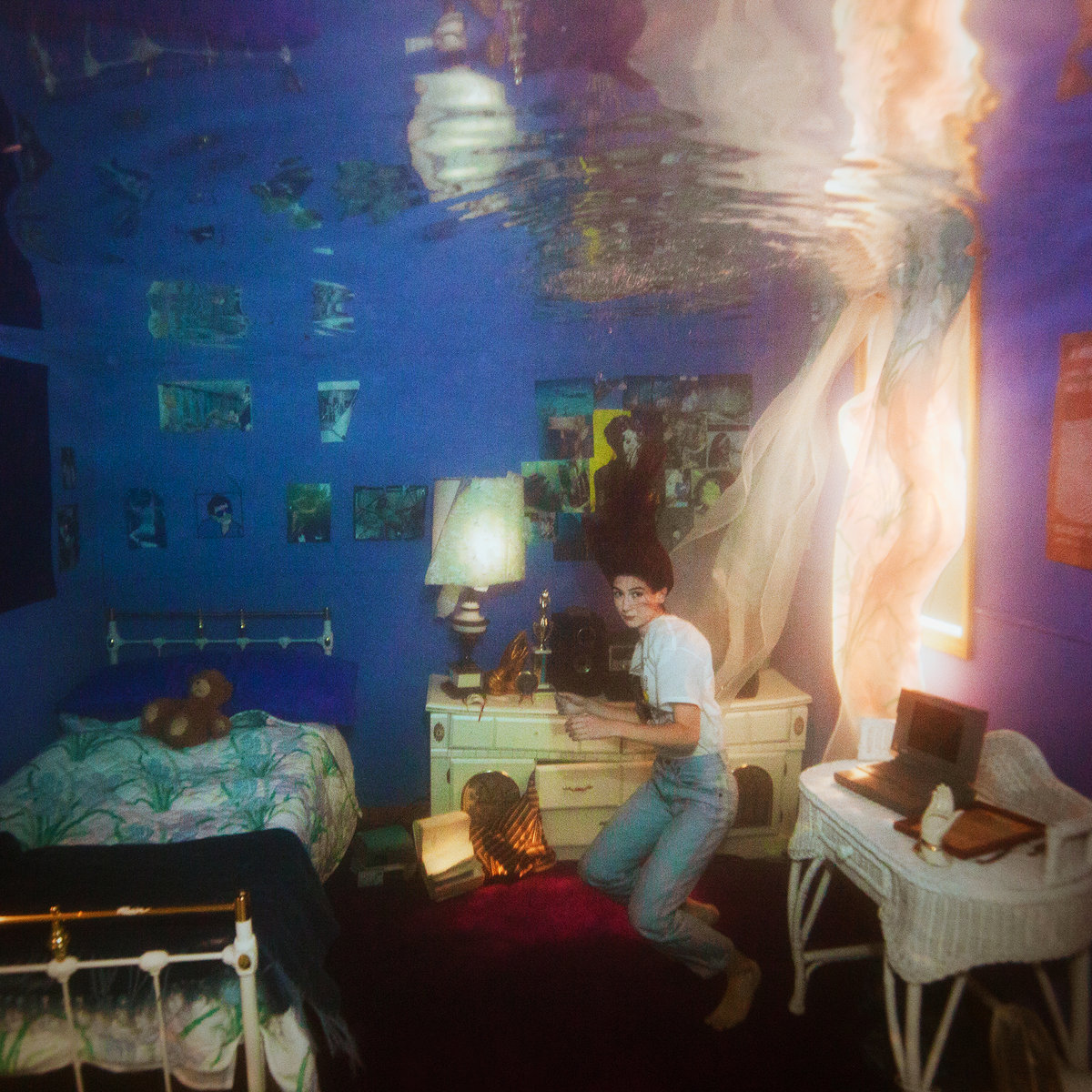
2019, 9.5/10
Weyes Blood was born Natalie Mering, in California, and grew up in Doylestown, Pennsylvania. She derived the name Weyes Blood from the Flannery O’Connor novel Wise Blood, and released her first album in 2011, following self-released albums as Weyes Bluhd.
Titanic Rising is Blood’s fourth album, and it’s been a critical breakthrough for her, an early candidate for album of the year. Stylistically, it’s an unexpected choice for critical favour – at times, Mering’s rich voice and the lush studio arrangements recall a Carpenters record from the early 1970s.
Despite drawing on textures from the past, Blood’s lyrical concerns are contemporary. Titanic Rising tackles both global crises, like helplessness in the face of the climate emergency, and personal issues, like disconnectedness in the face of technology. These are dystopian themes, but reading Blood’s lyrics on paper, they’re not too different from the search for meaning and connection on a 1970s Jackson Browne record:
Everyone’s broken now and no one knows just how
Wild Time
We could have all gotten so far from truth
Titanic Rising houses some stunning tracks. First single, ‘Andromeda’ has a psychedelic edge – with its synth landscape and elegant melody, it’s reminiscent of Radiohead’s OK Computer. The use of pedal steel on an atmospheric track also recalls Pink Floyd.
The Carpenters comparison is justified by ‘Something to Believe’, a lush piano ballad. The stacked backing vocals and lead guitar tones are both similar to The Carpenters’ work, and the confessional opening line “Drank a cup of coffee this morning” reinforces the 1970s aura.
The pivotal track for appreciation of Titanic Rising is the sixth track, ‘Movies’. While most of Titanic Rising is warm and inviting, ‘Movies’ is austere and cold, with Blood’s voice competing with quivering synths for attention. It’s a bold artistic move. Placed in the middle of the record, it has the effect of dividing the album into two acts and accentuates that the first half of the record is stronger than the second.
Titanic Rising features some brilliant tracks, and the collision of warm soundscapes and cold dystopian themes is often captivating.
AND IN THE DARKNESS, HEARTS AGLOW

2022, 7/10
Natalie Mering’s previous album, 2019’s Titanic Rising, was one of my favourites of the year. Mering’s poised and piano-based music recalls the early 1970s singer-songwriters. Her rich voice resembles Karen Carpenter, while her father dated Joni Mitchell in the 1970s. And in the Darkness, Hearts Aglow is in the same vein but, with less memorable material and a lack of new stylistic ground, the formula wears thin.
Most of the tunes aren’t strong enough to carry the record – there are solid tunes like the quasi-title track ‘Hearts Aglow’, the opening ‘It’s Not Just Me, It’s Everybody’, and ‘Grapevine’. But much of the remainder sounds like Titanic outtakes. The lengthy ‘God Turn Me Into a Flower’ has quickly become a fan favourite, but it drags, delivered at a glacial pace.
Coming after the impressive Titanic Rising, Hearts Aglow is perhaps my biggest musical disappointment of 2022.
Stella Donnelly
Beware of the Dogs

2019, 7/10
Stella Donnelly was born in Wales, but moved to Perth, Australia, early enough to gain a thick Australian accent. Beware of the Dogs is her debut album, a followup to her 2017 debut EP, the exquisitely titled Thrush Metal. Armed only with a guitar, the feisty Australian woman retells tales from her catalogue of assholes, like an indie version of Lily Allen.
I have mixed feelings about Beware of the Dogs; I certainly take Donnelly’s side against the unhelpful men that she documents, but sometimes the personality overrides the musical content. Moments like the ways Donnelly pauses, then rhymes “get laid” with “muck” on ‘Tricks’ would be better suited to a stand-up comedy routine and undersell her talent. Conversely, if you find most singer-songwriters a little dour, you may enjoy Donnelly’s animated delivery.
When the focus is on the music, Beware of the Dogs is often excellent. Opener ‘Old Man’ has a lovely acoustic riff, and it’s easier to sell the heavy message on sexual harassment – “You grabbed me with an open hand/The world is grabbin’ back at you.” Donnelly’s also a sharp lyricist – “Look me in the eye/Tell me that you’re fine/I’m not here to taste all your cheese and wine” is a cheekily effective couplet from ‘Die’.
I prefer my singer-songwriters more dignified, but you may well find Beware of the Dogs a breath of fresh air.
Sky Ferreira
Night Time, My Time

2013, 8.5/10
Sky Ferreira is a Los Angeles songwriter, actress, and model, who gained attention through her MySpace demos as a teenager. On her debut album, Night Time, My Time, she works with producers Ariel Rechtshaid (Vampire Weekend, HAIM, Madonna) and Justin Raisen, who are able to achieve a perfect balance between pop accessibility and edgier sounds, preventing Night Time, My Time from sounding like mere designer angst. Rechtshaid and Raisen also provide most of the instrumentation, while Ferreira’s voice is an asset, rich and expressive. Night Time, My Time blends 1990s alternative rock with 1980s synth-pop, so songs like the dissonant, guitar-heavy ‘Omanko’ and the infectious dance-pop of ‘You’re Not The One’ follow each other in the tracklist.
My favourite track blends the two approaches – ’24 Hours’ features a dance beat and twinkling keyboard hook coupled with vocal urgency and driving guitars. On the poppy end of things, ‘You’re Not The One’ features a memorable guitar hook over a dance beat, while ‘I Blame Myself’ is gentle and soul-searching. There’s more intensity in ‘Heavy Metal Heart’ and ‘Nobody Asked Me (If I Was OK)’, while the album is at its most experimental with the dissonant ‘Omanko’, and the title track, which ends the album with a drone.
Mixing poppy hooks with a heavy guitar attack and more esoteric moments, Night Time, My Time was a deserved critical favourite that’s taken Ferreira a long time to follow up.
FKA Twigs
Magdalene

2019, 8/10
FKA Twigs was born in Gloucestershire to a Jamaican father and English/Spanish mother; she’s complained that her mixed race has caused her to be pigeon-holed as an R&B artist. She released her first EP, EP1, back in 2012, but it’s taken her until 2019 to release her second album.
The theatrical art-pop of Magdalene is surprisingly reminiscent of Kate Bush at times – although comparing a female artist to Bush is the music writer’s equivalent of “it tastes like chicken”. Compared to the trip-hop of FKA Twigs’ debut, LP1, her vocals are more upfront in these minimalist electronic arrangements, and she’s both eccentric and enthralling.
The lead single was the minimalist ‘Cellophane’; its off-kilter feel recalls Radiohead, but it’s one of the least dynamic songs on the record. In comparison, Magdalene works best when FKA Twigs is aiming for dramatic weirdness – ‘Mary Magdalene’ and ‘Fallen Alien’ both showcase her vocal range. ‘Holy Terrain’, with its feature from Common, edges closer to mainstream pop and it’s a good fit. The mantra-like ‘Daybed’ is also effective, with its list of bizarre one-liners; “Fearless are my cacti/Friendly are the fruit flies.”
Magdalene dropped late in 2019, but it’s still featured in many end of year lists. I find it too minimalist to reward repeat listening, but at its best FKA Twigs’ theatrical art-pop is very effective.
Fontaines D.C.
Dogrel
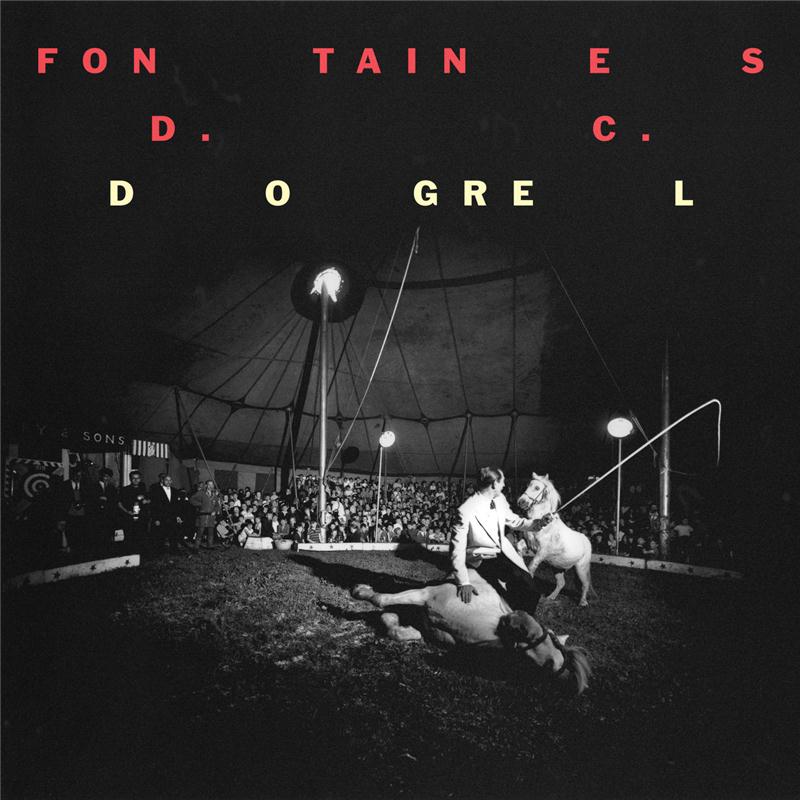
2019, 7.5/10
The D.C. in Fontaines D.C. stands for Dublin City – the band were forced to modify their name due to another group with the same moniker. The five members – Carlos O’Connell, Conor Curley, Conor Deegan, Grian Chatten, and Tom Coll – have a staggering preponderance of names beginning with C, and met at music college in Dublin. They discovered a shared love of poetry, and have together released two volumes of poetry. Dogrel is their debut album, named for Doggerel, working class Irish poetry.
Vocalist Grian Chatten grew up in Dublin County, and his thick Irish accent is perfect for the band’s punk attack. Fontaines D.C. are often classified as post-punk, but their guitars, bass, and drums arrangements remind me of straightforward punk; with Chatten’s gruff vocals, they resemble early material from The Clash and The Jam. Their lyrics are less nihilistic than you’d expect from a punk band, instead laced with the touch of romance that you’d expect from poetry students (“Well, Dublin in the rain is mine/A pregnant city with a catholic mind”).
With Brexit, Trump, and a growing concentration of the world’s wealth in the hands of the elite, conditions are certainly ripe for a new wave of political punk. In ‘Boys in a Better Land’, Chatten quotes a driver who “spits out “Brits out””, over a stomp that recalls The Stooges. ‘Liberty Belle’ recalls the straightforward British punk of the late 1970s, but the lyrics are noticeable articulate, with lines like “of the marriage of the socialite’s money to another one’s land”. The closing ‘Dublin City Sky’, is a distinct change of pace, a folk inflected piece that recalls The Pogues.
Like a good punk album, Dogrel prospers due to its visceral energy – a forty minute jolt of thoughtful momentum.
Glass Beach
the first glass beach album
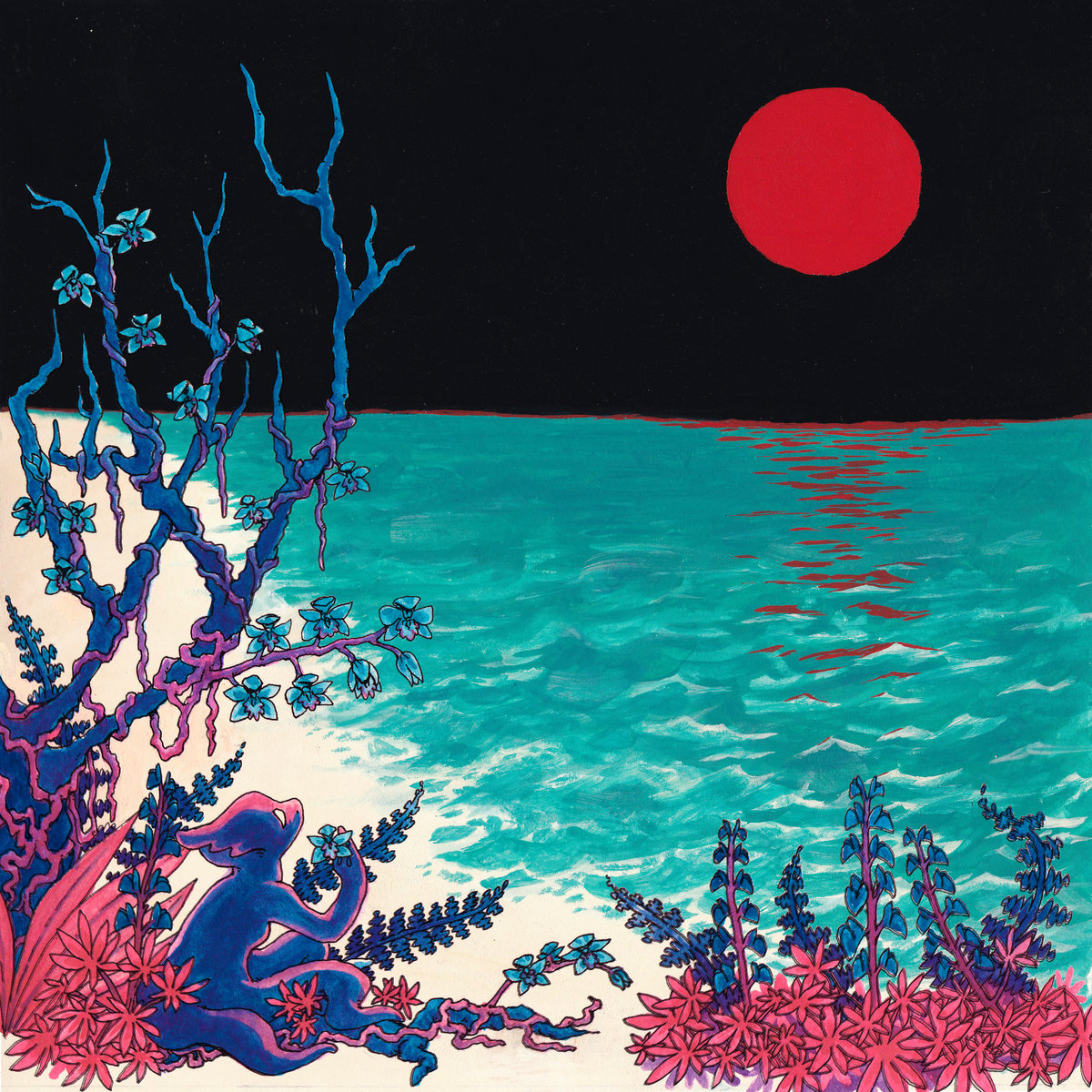
2019, 8/10
Back in the 1990s, Beck was the epitome of post-modern, blurring the lines between genres on projects like Odelay. Los Angeles band Glass Beach take this approach six light years further on their debut album. They ignore genre boundaries and change gears abruptly multiple times during the course of a single song.
“the sound of glass beach is a fusion of our diverse range of influences including 1960s jazz, new wave, early synthesizer music, and emo, but all presented with the harshness and irreverence of punk music. we embrace the trend towards genrelessness caused by the increasing irrelevance of record labels and democratization of music brought about by the internet and enjoy playing with musical boundaries even to the point of absurdity.”
Glass Beach
Glass Beach launched their career with grandeur – many bands start with EPs, but Glass Beach simply released an hour long debut record. It paid off – they gathered enough momentum that they’ve now received the attention of taste-makers like Pitchfork and TheNeedleDrop.
There’s extreme diversity on the first glass beach album, but much of it has roots in the late 1990s and early 2000s. There’s more than a hint of emo in the vocals of Casio Dad. The first half of ‘Neon Glow’ is driven by pop-punk energy, while the second half builds from ambient noodling into acoustic indie pop, before lifting in intensity for the climax.
Sometimes Glass Beach’s vocals fail to match the grandiosity of the music – the vocals are malleable to keep up with the intricate melodic twists and turns, but can grate after a while. Nevertheless, the first glass beach album is one of the densest records I’ve ever heard – there’s so many ideas here, and it’s worth listening to see if some connect with you.
Cate Le Bon
Reward
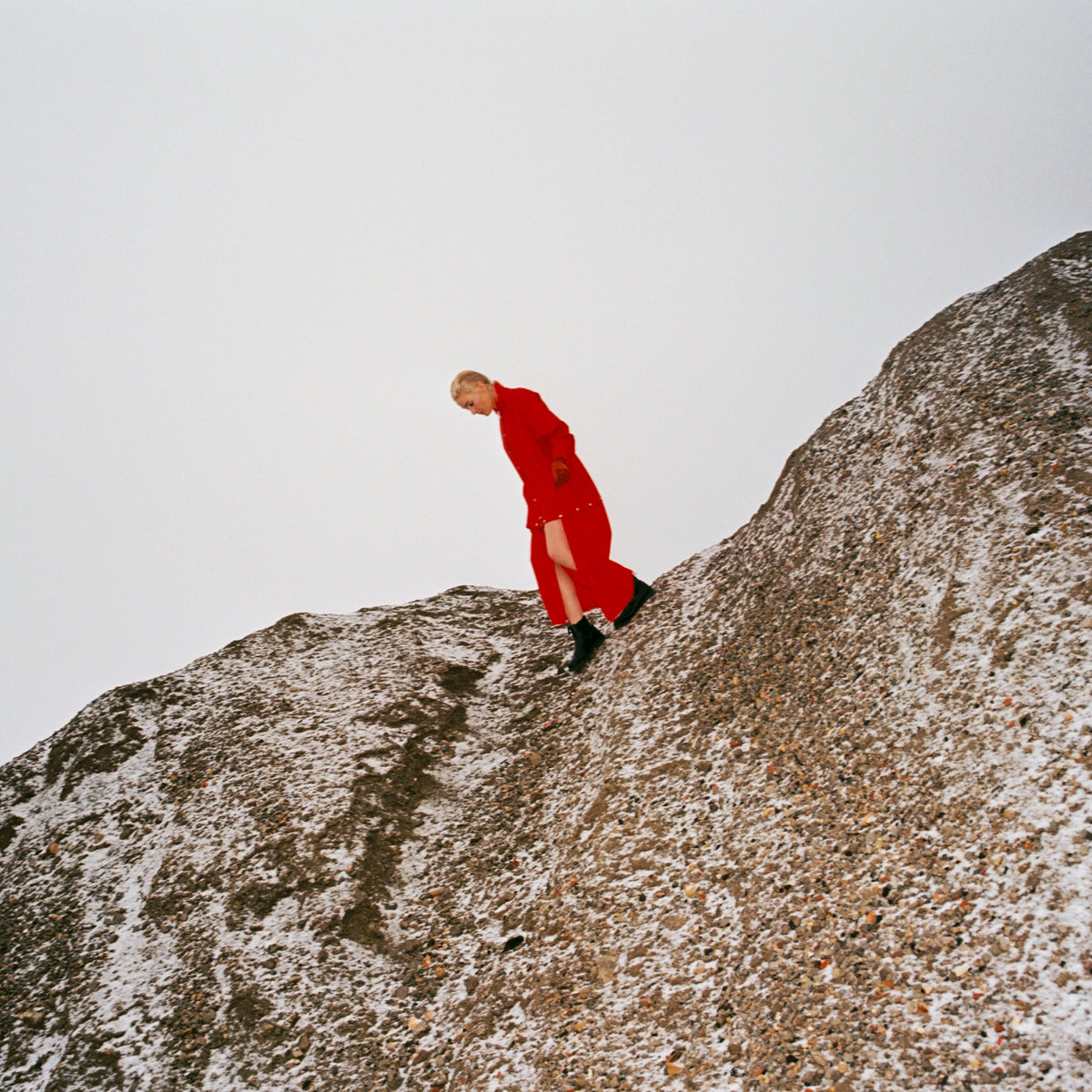
2019, 7.5/10
Cate Le Bon was discovered by Super Furry Animals front-man Gruff Rhys, opening for him on his 2007 tour. She’s since released a string of well-received records. Leading up to her fifth album, Reward, Le Bon spent a year living alone in the Lake District. In daylight hours she learned to make wooden furniture and at night she composed on her piano.
By the time of Reward, Le Bon’s music still has vestiges of folk, but the predominant flavour is minimalist chamber-pop. Half of the tracks don’t have a regular rhythm section, instead backing Le Bon’s vocals with saxophone and guitar melody lines. The results are often distant from the mainstream of popular music, recalling Messiaen’s Quatuor pour la fin du temps.
The unusual arrangements are pushed straight into service from the outset – the opener ‘Miami’ immediately launches into a hypnotic arrangement. The single ‘Daylight Matters’ is much more straitlaced, with a rhythm section, but the saxophone and guitar leads still provide an off-kilter feel. Closer ‘Meet the Man’ recalls Bowie’s Berlin-era with its cavernous and arresting vocal, backed with snatches of saxophone.
Michael Kiwanuka
Kiwanuka
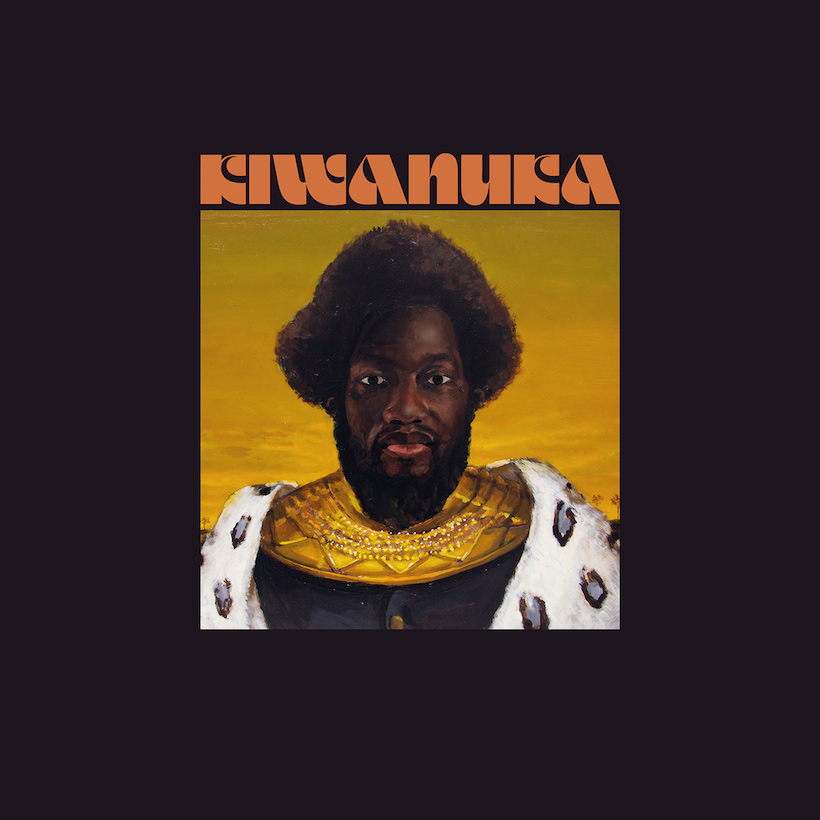
2019, 7.5/10
Michael Kiwanuka was born in London to Ugandan parents who escaped the Idi Amin regime. He began his career as a session guitarist, then as an indie-folk artist. Now on his third album, Kiwanuka’s morphed into a soul performer with a retro sound that recalls Bill Withers and Otis Redding. It’s a natural fit for Kiwanuka’s warm voice.
Adding to the retro feel, there’s a touch of psychedelia to some of these arrangements, like the swirling riff on ‘Hard to Say Goodbye’. The punchy horn chart of ‘Living in Denial’ sounds like it’s straight from a late 1960s Stax single.
The punchy production from Danger Mouse sounds great, and Kiwanuka’s voice is warm and velvety. The songs aren’t always as memorable as those of the record’s influences – in particular, Kiwanuka’s lyrics often seem perfunctory, with personality-free couplets like “Don’t hesitate/Time heals the pain/You ain’t the problem.”
It’s tough living up to comparisons to legends like Withers and Redding, but Kiwanuka’s voice has too much soulful gravitas to be dismissed as mere pastiche.
Octo Octa
Resonant Body
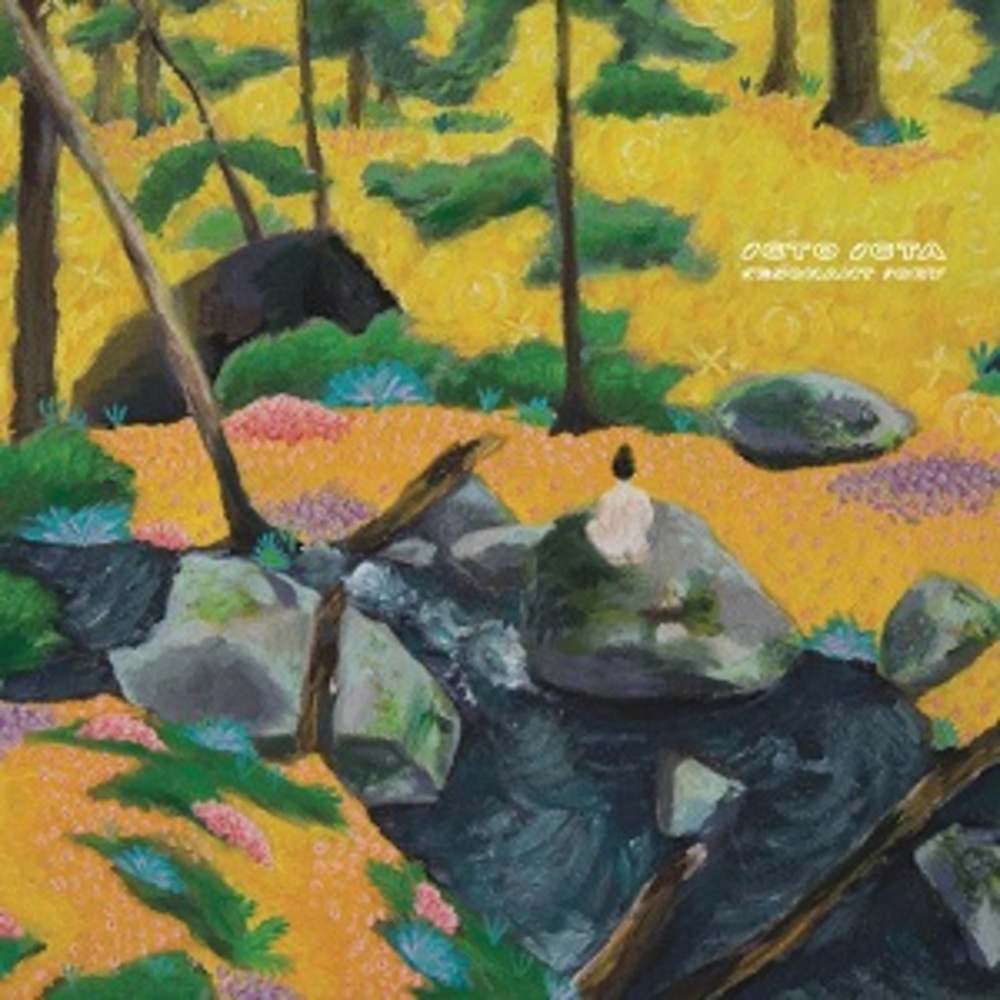
2019, 8/10
I’ve always struggled with dance music – usually I prefer the human aspect of vocals and lyrics, although I enjoy the beauty of classical music and the musical personality of jazz players. Octo Octa has a more human side than most dance music, giving me a way in. Maya Bouldry-Morrison is a transgender DJ whose music expresses joy.
I don’t have enough knowledge of dance music to describe Resonant Body, so I’m going to quote some writers who do:
“Octo Octa has a way of mixing cream-crop 90’s ambient coolness to a most wild neu-queer club metric without being frantic, building layers of release with precision.”
Sunni Johnson
It’s loaded with retro-rave pumpers such as Spin Girl, Let’s Activate!, where acid flavours shift into a climbing piano house jam that tempts a third summer of love….. But it’s in the nature-driven tranquility of sole ambient cut My Body Is Powerful and the affirming vocal samples on spiralling single Can You See Me? where Octo Octa manifests the record’s intent, championing and validating her community.
Tayyab Amin
I’m never going to be a huge fan of dance music, but there’s enough happening on Resonant Body to hold my attention.
Caroline Polachek
Pang
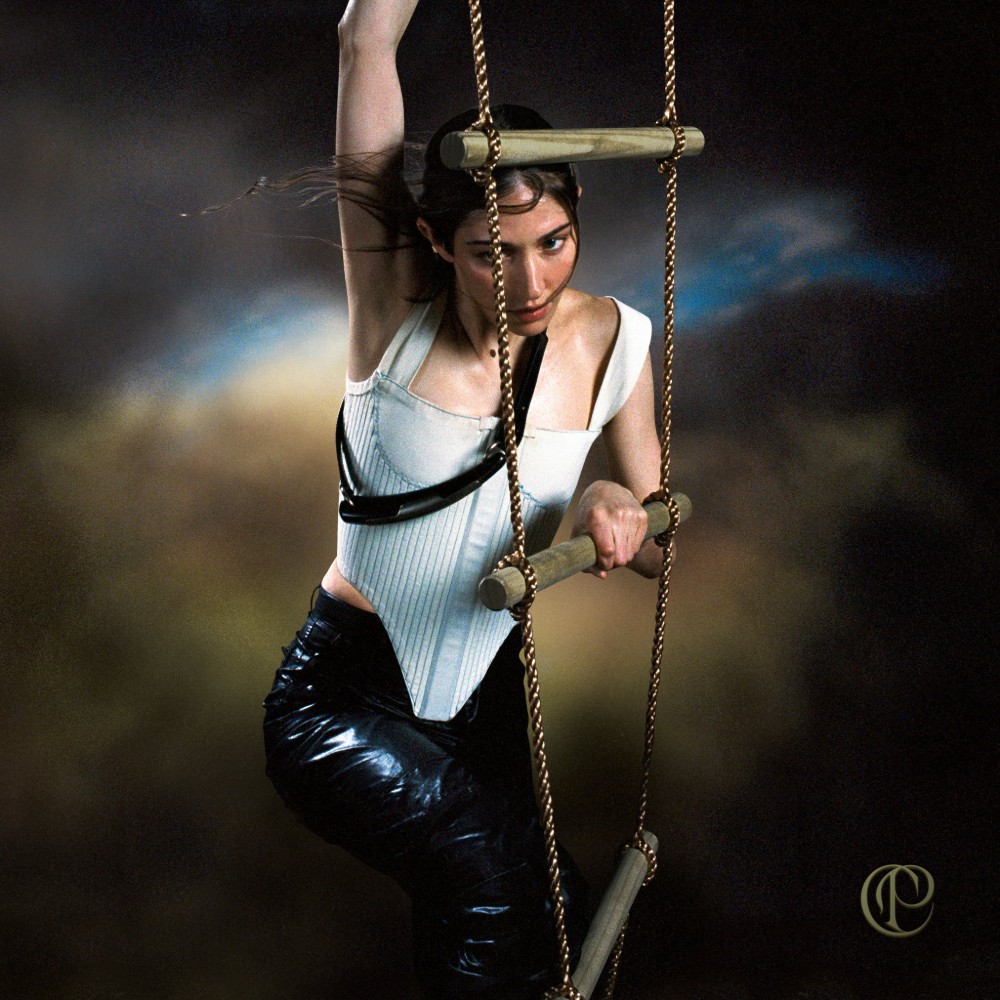
2019, 8.5/10
Caroline Polachek grew up in Connecticut and was formerly the vocalist for the indie-pop duo Chairlift, who had a surprise hit in 2008 with ‘Bruises’. She’s previously flirted with a solo career, releasing albums under the aliases Ramona Lisa and CEP, but Pang is her first record under her own name.
Pang is recorded with producers from the London collective PC Music, as well as New York producer Daniel Nigro. It’s a similar crew that’s produced recent records from Charli XCX and Carly Rae Jepsen, but Polachek favours artier, spacier music. The tone of Pang is dominated by ethereal art-pop, although it also features straightforward pop moments.
According to an interview with The Guardian, Polachek experienced adrenal rushes that interfered with her sleep. She referred to them as “pangs” and attempted to recreate the feeling in her music – the project was initially planned as warm and folk-tinged. Polachek also compares her experience making Pang to Joni Mitchell’s Hejira – at the end of a marriage, she felt a need to escape from New York.
Unusually, the most obvious pop hooks are buried towards the end of the record. ‘Door’ was the first single, and it’s a pretty and meandering melody, with meditative lyrics like “Who is the you who I sing to/When the house is empty?” ‘So Hot You’re Hurting My Feelings’ is the most overt pop song, with its memorable “Get a little lonely” hook and Polachek’s excitable gasps.
The more ethereal songs sound surprisingly like Enya, although more conventional reference points are Imogen Heap and Bjork. Songs like ‘Look At Me Now’ and ‘Go As A Dream’ are gorgeous, with Polachek using her lovely voice to emote pretty tunes.
Pang presents Polachek’s pop sense and more ethereal moments in a unified fashion, and it’s one of my favourite records from this year.
Jessica Pratt
Quiet Signs

2019, 6/10
San Francisco-born musician Jessica Pratt learned guitar playing along to T. Rex’s Electric Warrior. With her hushed vocals and finger-picked guitar, Quiet Signs feels akin to the early 1970s folk and freak-folk scenes, and Pratt has been compared to Joan Baez and Sibylle Baier.
It’s almost always vocals that keep me from enjoying artists that I should theoretically like – I can’t stand Peter Hamill’s vocal histrionics for Van Der Graaf Generator, and I don’t enjoy Jessica Pratt’s pinched and mannered voice. With such a minimal sound, Pratt’s voice is at the centre, and it’s difficult to get past.
Aside from the vocals, there’s plenty to like. I appreciate how the first two songs start with identical chords, except ‘Opening Night’ is played on the piano and ‘As The World Turns’ on guitar. The production is gorgeous, surrounding Pratt’s voice with ambient prettiness. Pratt’s tunes are often very good; the upbeat ‘Poly Blue’ is an excellent change of pace with a creative chord sequence, and songs like ‘Here My Love’ are pretty.
I found it difficult to enjoy Quiet Signs, but if you don’t mind Pratt’s mannered vocals there’s a substantial record here.
Purple Mountains
Purple Mountains
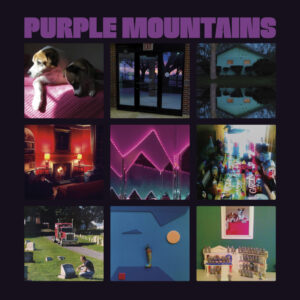
2019, 8/10
The saddest story in 2019 popular music belonged to David Berman. The former leader of Silver Jews had taken a ten-year hiatus from music, during which he sought to undo the damage to society caused by his father, a prominent alcohol and tobacco lobbyist. Berman also had other struggles, losing his mother, separating from his wife and facing substantial credit card debt, but emerged with the acclaimed Purple Mountains album in July 2019.
While I’d heard of Silver Jews through their association with Pavement, I’d never listened to Berman’s music until after his passing in August 2019. While Pavement’s Stephen Malkmus and Bob Nastanovich were initially part of Silver Jews in the early 1990s, Berman’s music is closer to alt-country – Berman’s doleful voice sometimes recalls Townes Van Zandt.
Berman tried working with The Black Keys’ Dan Auerbach and Destroyer’s Dan Bejar, but eventually recorded with Jarvis Taveniere and Jeremy Earl of Brooklyn folk-rock band Woods. Purple Mountains isn’t about hooks – it’s more about Berman’s emotionally naked story telling.
Berman’s songs dissect the recent events in his life – losing his mother in ‘I Loved Being My Mother’s Son’, and his estrangement from his wife on ‘She’s Making Friends, I’m Turning Stranger’. Sometimes Purple Mountains is unbearably raw – on ‘Nights That Won’t Happen’, Berman sings “All the suffering gets done by the ones we leave behind.”
Because there are nine sadly restrained songs, the bouncy tune stands out – ‘Storyline Fever’ has a lively guitar hook, and Berman’s singing is more animated – “You got storyline fever, storyline flu/It’s filtering how everything looks to you.”
I didn’t have any connection to Berman’s music before his death, but I imagine it’s difficult for long-term fans to listen to. I would have hoped that getting these stories down on paper would have helped Berman, but Purple Mountains is like listening to an extended suicide note. It’s deservedly regarded as one of the best records released this year, but it makes for uncomfortable listening.
Solange
When I Get Home

2019, 8.5/10
The younger sister of Beyoncé, Solange Knowles hit her stride with 2016’s excellent A Seat At The Table. That record utilised a conventional neo-soul palette, with hits like ‘A Crane in the Sky’. When I Get Home is a much unusual record, experimental R&B built around repetitive song structures and short running times. Solange has cited the repetition of Stevie Wonder’s The Secret Life of Plants and Steve Reich as influences, and they make sense as touchstones for this record.
When I Get Home was written is about Solange’s hometown of Houston, Texas. As well as Wonder and Reich, the record is also musically shaped by the chopped and screwed hip-hop of Houston. The most memorable lines are in ‘Almeda’, a song named for a district in Houston; “Brown skin, brown face. Brown leather, brown sugar. Brown leaves, brown keys. Brown creepers, brown face. Black skin, black braids.”
Repetitive grooves coloured with retro keyboards fuel tracks like ‘Stay Flo’ and ‘Way to the Show’. The approach of mixing programmed beats with live bass and keyboards gives the music personality, and song snippets like ‘Things I Imagined’ and ‘I’m A Witness’ are tuneful.
It doesn’t quite match the excellence of A Seat At The Table, but When I Get Home is a worthy follow-up that takes Solange’s muse in a more esoteric direction.
These New Puritans
Inside The Rose
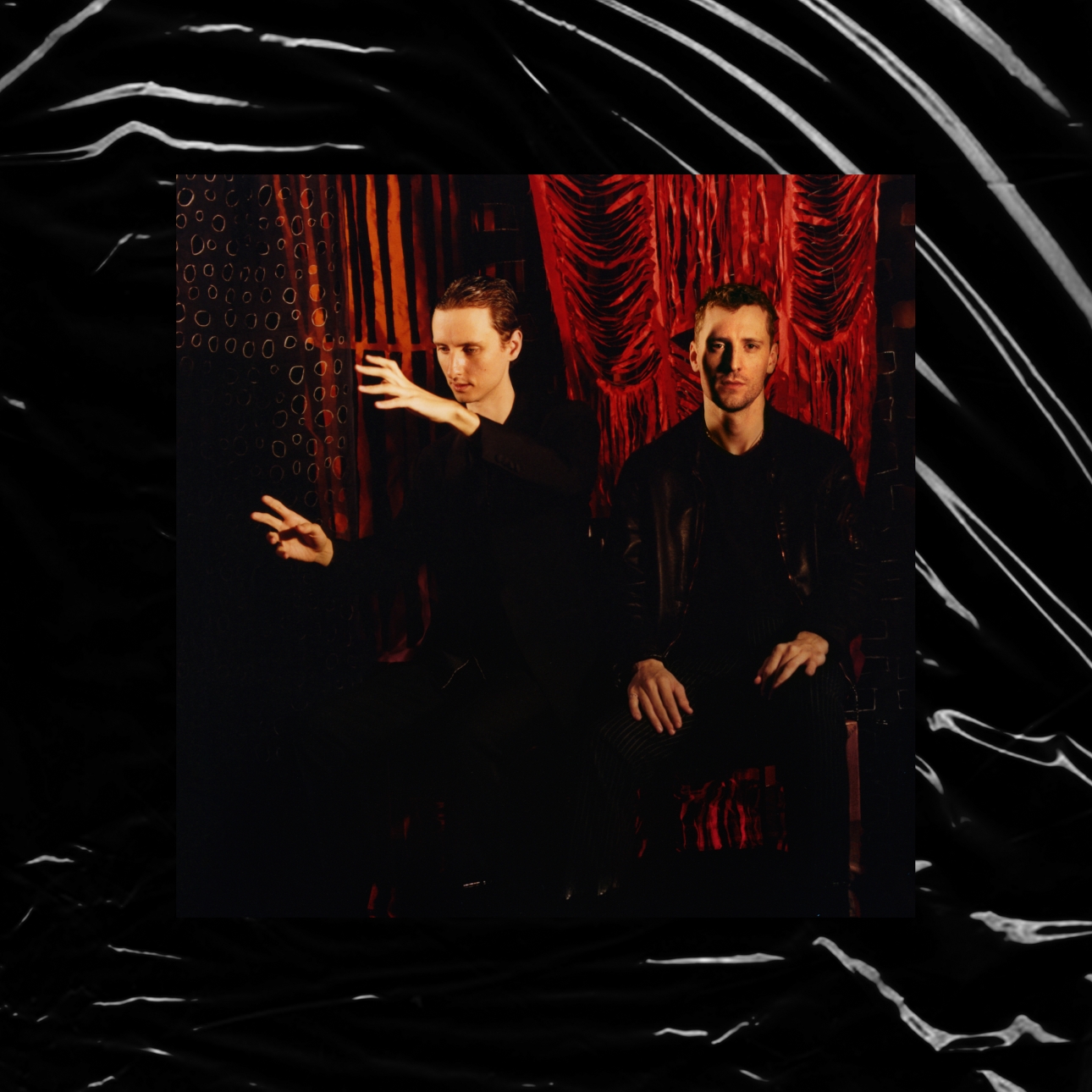
2019, 8/10
On their fourth album, the official lineup of These New Puritans is two twin brothers: Jack and George Barnett. From England’s Southend-On-Sea, the band have released four albums starting with 2008’s Beat Pyramid. The group’s music is textural and a little dark – their emphasis of percussion and orchestral instruments recalls late-period Talk Talk.
The New Puritans’ strength is their production and arranging skills. Even though they bring other vocalists to complement him, Jack’s vocals are a little monotone, which does suit the unsettling music. But their arrangements are often wonderful.
It all coalesces on the spectacular opener ‘Infinity Vibraphones’, which is built around interlocking vibraphone parts. The lyrics build in intensity, culminating with this great couplet: “Down here in hell we’ve got everything you need/We’ve got carbon and mercury/We’ve got iron and iodine/Platinum, radium, hydrogen and uranium.”
The record’s other long track, ‘A-R-P’, is also a winner, undergirded by an unsettling electronic whine and more vibraphone. Despite Jack Barnett’s limitations as a vocalist, he hits hard with “this is the place where the trees are on fire”.
With its wonderful arrangements and dark unsettling atmosphere, Inside The Rose is often gorgeous.
Sharon Van Etten
Remind Me Tomorrow
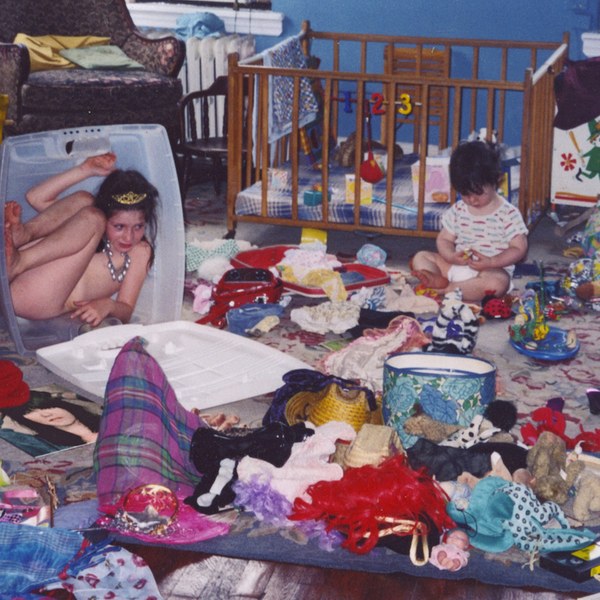
2019, 7.5/10
New Jersey singer-songwriter Sharon Van Etten took five years between albums after 2014’s Are We There. She gave birth to her first child, worked toward a psychology degree, and guest-starred in Netflix series The OA. When she returned with Remind Me Tomorrow, she changed her sound; while working on the ambient guitar soundtrack for Strange Weather, Van Etten grew tired of guitar and turned to piano and synthesisers. Accordingly, Remind Me Tomorrow is based around piano, as well as organ and synths.
The advance singles in particular highlight this new aesthetic. ‘Jupiter 4’ surrounds Van Etten’s voice with spacey soundscapes and ominous drum machines. The most loved song is ‘Seventeen’, Van Etten’s reminiscences of her own youth; “I see you so uncomfortably alone/I wish I could show you how much you’ve grown.”
The key tracks are clustered in the centre of Remind Me Tomorrow. On the quieter tracks at the conclusion, the arrangements are more restrained – ‘You Shadow’ swings along gently with Van Etten playing organ.
Remind Me Tomorrow is a departure for Van Etten, and earlier records like 2010’s Epic and 2014’s Are We There might be a better starting point.
WE’VE BEEN GOING ABOUT THIS ALL WRONG

2022, 7/10
Before streaming, listeners relied on the radio singles to gauge an album. In the case of Sharon Van Etten’s We’ve Been Going About This All Wrong they’d likely be disappointed. The first two singles from the record, ‘Mistakes’ and ‘Headspace’, are upbeat synth-pop, polished and radio-friendly. The rest of the New Jersey artist’s sixth record is more typical singer-songwriter fare, moody and introspective.
Van Etten’s detached voice is well-suited to the pop moments. The upbeat moments like ‘I’ll Try’ and ‘Mistakes’ overshadow the record’s lower-key songs. The darker songs like ‘Anything’ and ‘Born’ don’t quite have the melodic spark or warmth to reach the same level.
Van Etten has some very strong songs on this record, and on 2019’s Remind Me Tomorrow – as well as last year’s collaboration with Angel Olsen. She’d be able to make an excellent greatest hits.
Kanye West
Jesus Is King
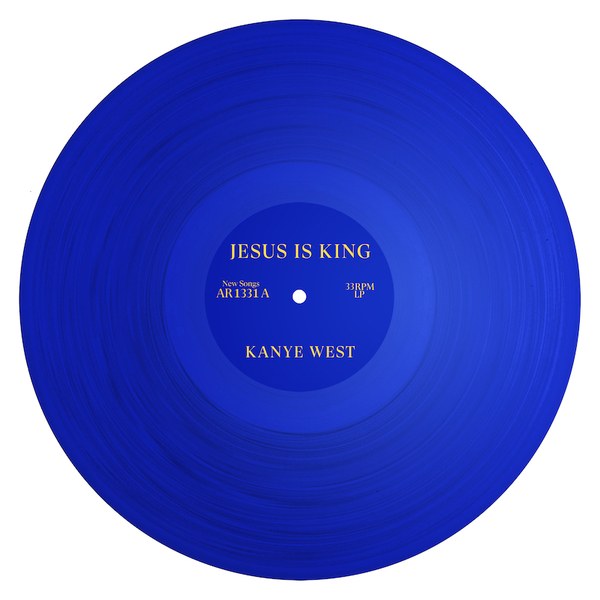
2019, 6/10
There’s a strong argument that hip-hop is the most significant form of American popular music in the 21st century. There’s also a valid argument that Kanye West is the most significant American hip-hop artist of the 21st century, although he has tough competition from the likes of Jay-Z, Kendrick Lamar, and Eminem. 2004’s The College Dropout, and its single ‘Jesus Walks’, garnered West immediate attention, and ever since he’s been able to enjoy both commercial success and critical acclaim for records like My Beautiful Dark Twisted Fantasy and Yeezus. West has won 21 Grammies, and his four Pazz & Jop album of the year wins is tied only with Bob Dylan.
The Pazz and Jop wins isn’t the only similarity with Dylan; in 2019 West re-affirmed his Christian faith, and released Jesus is King, a gospel album. There are many flavours of Christianity around, and West has embraced a right-wing brand; he’s embraced the prosperity doctrine, the belief that God rewards his followers materially. During ‘On God’, he comments on tax rates “The IRS want they fifty plus our tithe/Man, that’s over half of the pie”, while he applauds Chick-Fil-A on ‘Closed On Sunday’. On the other hand, West’s fevour is palpable – he’s charismatic and he owns lines like “I know I won’t forget all He’s done/He’s the strength in this race that I run.”
At 27 minutes, Jesus Is King is brief and insubstantial, but the music is generally sounder than the theology. West formed a gospel choir, named Sunday Service, and their gospel vocals often form the backdrop. West’s collision between gospel vocals and hip-hop provides a signature sound for Jesus Is King. The gospel choir of Sunday Service on ‘Every Hour’ open Jesus Is King. The vocals of ‘Water’ bookend West’s rapping beautifully, and it’s Ant Clemons’ soaring voice that provides the most interest. Improbably, Kenny G appears at the end of ‘Use This Gospel’, and his smooth sax isn’t out of place in this weird melange.
Well-known record critic Donald Trump Jr has already showered Jesus Is King with praise, labelling it an “epitome of fearless creativity”. Personally, I think it’s the weakest 2019 album I’ve reviewed on this site to date, but West’s collision of hip hop and gospel still throws out some interesting musical moments.
Back to 2010s Album Reviews….
4 Comments
Leave a Reply
Related Pages
About
Aphoristic Album Reviews is almost entirely written by one person. It features album reviews and blog posts across a growing spectrum of popular music.
Review Pages
Read about the discographies of musical acts from the 1960s to the present day. Browse this site's review archives or enjoy these random selections:
Blog Posts
I add new blog posts to this website every week. Browse the archives or enjoy these random selections:


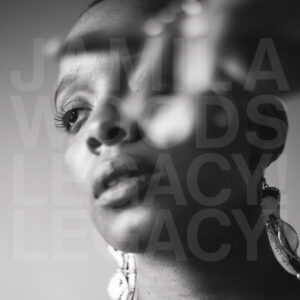
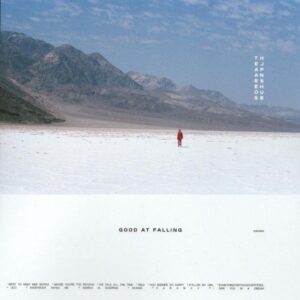
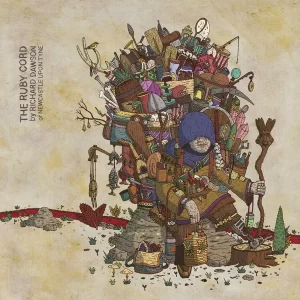
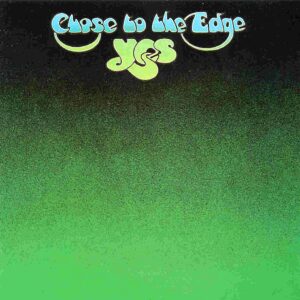
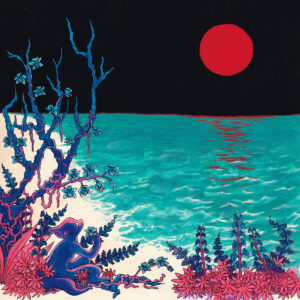
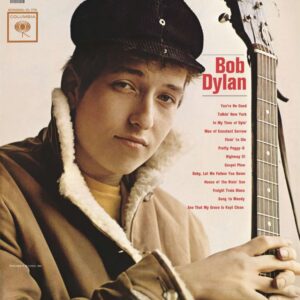
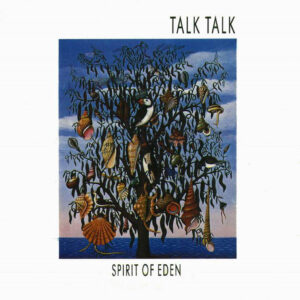
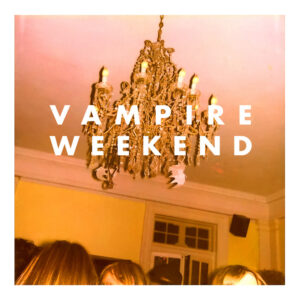
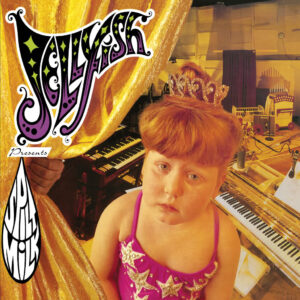
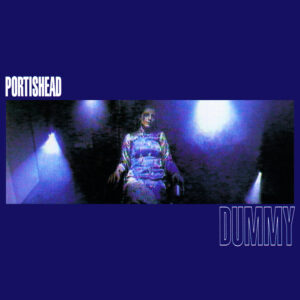

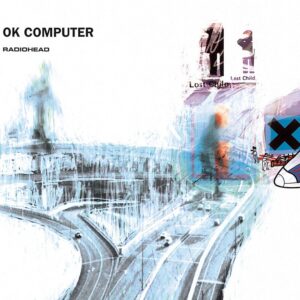
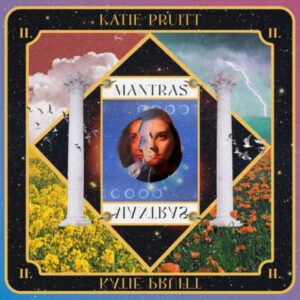
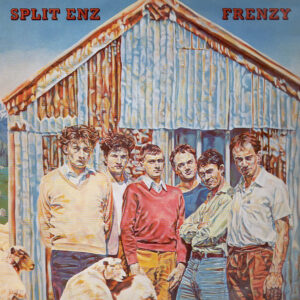
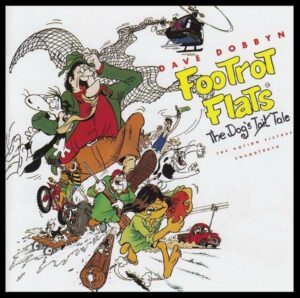
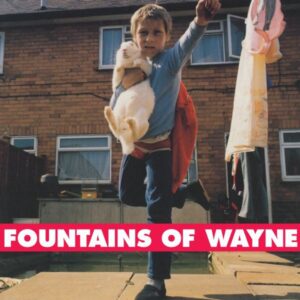
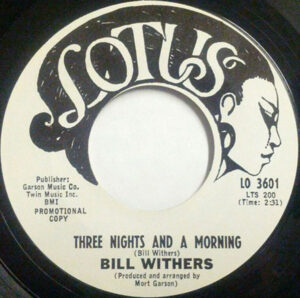

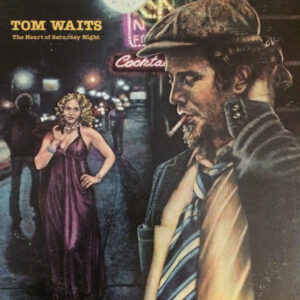




I went looking for any Kanye West reviews that may be on your blog and a quick search led me to this page where I assume you’ve only reviewed one of his albums: Jesus Is King. Now, this is probably one of his weaker albums and definitely isn’t the best album to review from him. I strongly recommend that you check out other albums from him, but if you were to only review one other album, I highly recommend that you review his fifth studio album, My Beautiful Dark Twisted Fantasy. It truly is one of the most notable masterpieces of the 2010s and I have no doubt that it will not disappoint you.
Totally – I do have Yeezus and MBDTF, and would like to pick up more. I would like to cover him sometime – hip hop is obviously very thinly represented on my site at the moment, and I would like to add more.
Wait you do have reviews for Yeezus and MBDTF? Could you link what pages if you have the chance?
No reviews, I have them on a playlist and have been listening to them, but I think it will take me a while to get there. I do like him though.